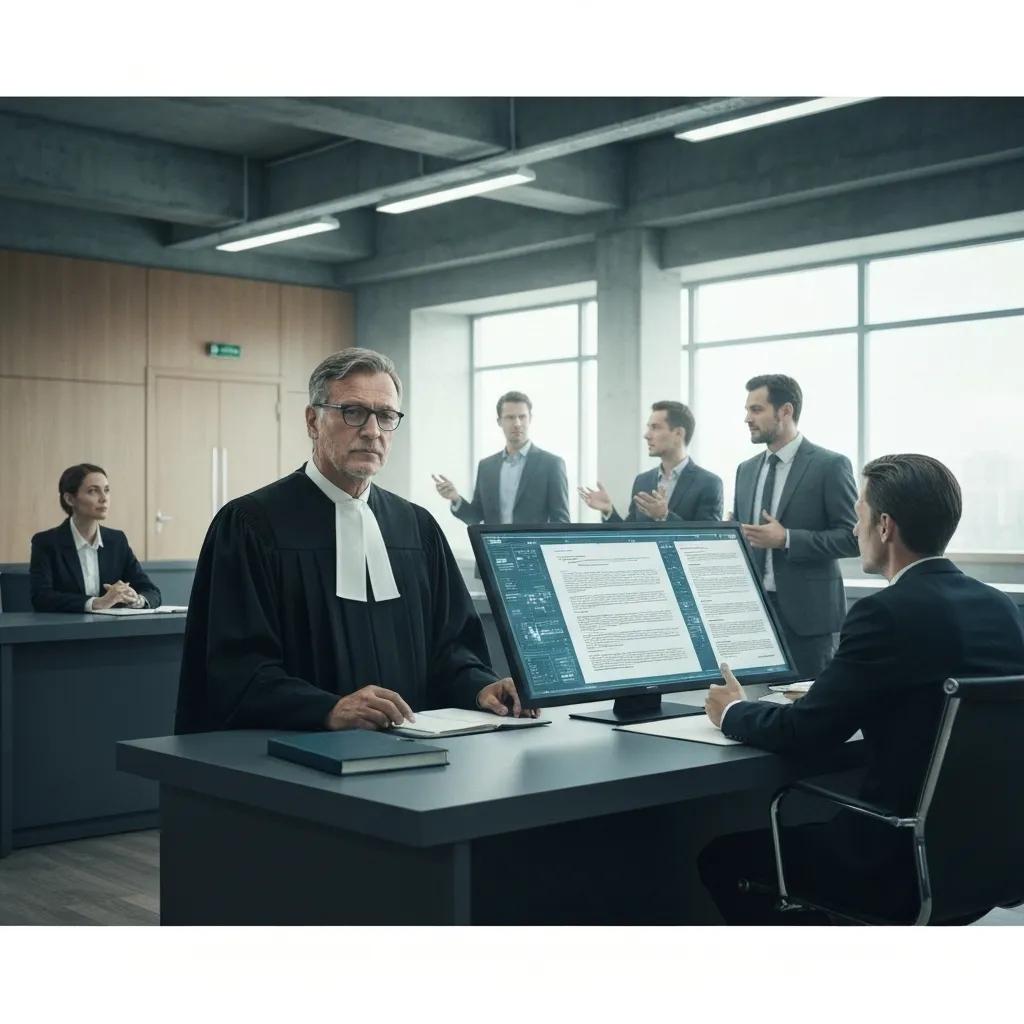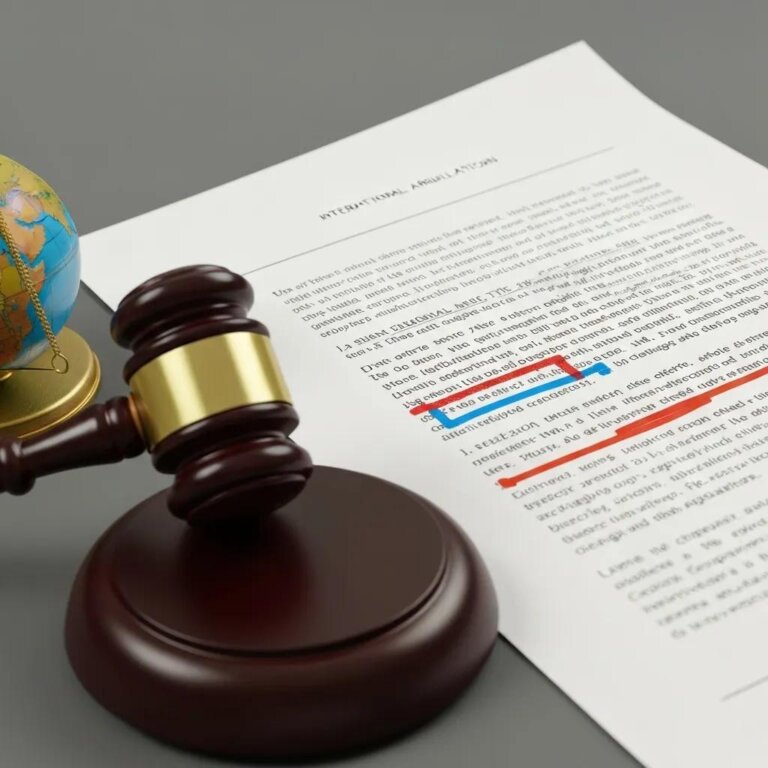GAFTA Arbitration: Your Compass for Navigating International Trade Disputes and Arbitration Rules
Facing a complex commodities dispute that stretches across international borders can throw your business into disarray and erode your bottom line. Fortunately, GAFTA arbitration offers a clear path to swift, binding resolutions. This in-depth guide will reveal how GAFTA arbitration leverages specialized rules, the solid foundation of English law, and deep industry acumen to effectively settle disagreements within the grain and feed trade.
Here’s your roadmap:
- A crystal-clear grasp of GAFTA arbitration and GAFTA’s central role.
- How GAFTA Rules 125, 126, and 128 sculpt the procedural journey for your case.
- A detailed, step-by-step walkthrough of the claim-to-award process under English law.
- Crucial insights into key contract templates, default provisions, and strategic drafting to sidestep disputes.
- Guidance on appeals, enforcement strategies, and the impact of the defaulters list.
- A comparative look at the upsides, common hurdles, and practical lessons gleaned from real-world scenarios.
Throughout this guide, we’ll weave in valuable perspectives on expert legal counsel services, designed to expertly steer you through the intricate landscape of GAFTA arbitration.
What Exactly Is GAFTA Arbitration and How Does It Tackle International Trade Disputes?
GAFTA arbitration is a privately managed dispute resolution service that employs standardized Rules 125-128, operating under English law. This ensures confidential, efficient, and definitive outcomes for conflicts arising in the grain and feed trade.
GAFTA Arbitration: The Premier Forum for Resolving Grain Trade Disputes
This academic paper delves into GAFTA arbitration as a highly effective forum for resolving disputes within the global grain trade, emphasizing its specialized rules and the distinct advantages it offers for swift and confidential resolutions.
This research strongly supports our article’s core assertion regarding GAFTA arbitration’s efficacy in international trade disputes and its function in delivering specialized resolution mechanisms.
By submitting your claim to an impartial tribunal, you can bypass lengthy litigation, engage arbitrators with profound industry knowledge, and secure enforceable awards. For instance, a feed importer and exporter could resolve a quality dispute in less than a year, thereby preserving valuable commercial relationships and significantly reducing legal expenditures.
What is the Grain and Feed Trade Association (GAFTA)?
The Grain and Feed Trade Association (GAFTA), established in London in 1878, plays a crucial role in standardizing global contracts for grains, pulses, feed, and rice. It provides essential arbitration services to maintain contractual certainty. GAFTA’s model contracts and rules have become the de facto standard in over 80 percent of global grain shipments, ensuring consistency and predictability in dispute resolution.
How Does GAFTA Arbitration Function in Commodity Disputes?
GAFTA arbitration primarily operates through written submissions, commencing with a Notice of Arbitration filed under Rule 125 or the expedited Rule 126. An appointed tribunal, comprised of seasoned industry experts, meticulously reviews the evidence, may conduct limited oral or virtual hearings, and ultimately issues a reasoned award. This streamlined process effectively minimizes delays, leverages specialized commodity knowledge, and controls procedural costs.
What Range of Disputes Does GAFTA Arbitration Cover?
GAFTA arbitration addresses a wide spectrum of disputes, including issues related to non-delivery, quality discrepancies, quantity shortfalls, price disputes, late shipments, and payment defaults under GAFTA standard contracts. It also handles intermediate claims such as disagreements over certifications and valuations of storage losses, ensuring comprehensive coverage for trade-related conflicts.
Why Are English Law and a London Seat Crucial in GAFTA Arbitration?
English law serves as the governing framework for GAFTA contracts and arbitration clauses, offering a well-established legal system renowned for its predictability and robust appeal mechanisms. Designating London as the seat of arbitration ensures that awards benefit from the supportive stance of English courts in enforcement matters and their established two-tier appeal structure.
What Are the Core GAFTA Arbitration Rules and How Do They Differ?

GAFTA Rules 125, 126, and 128 meticulously define procedural pathways that strike a balance between thoroughness and efficiency, all while upholding fairness and cost control. A clear understanding of their distinct characteristics will empower you to select the most appropriate route for your specific dispute.
Before we delve into a detailed comparison, the table below outlines the primary focus and application criteria for each rule.
This breakdown clearly illustrates how Rule 126 is engineered to expedite lower-value claims, while Rule 128 actively promotes early settlement, guiding parties toward time-efficient dispute resolution.
What is GAFTA Rule 125: The Standard Arbitration Procedure?
GAFTA Rule 125 establishes a comprehensive arbitration framework that encompasses claim submission, response, tribunal appointment, and evidence exchange, culminating in the issuance of an award. It rigorously ensures procedural fairness, mandates full documentary disclosure, and provides an opportunity for oral or virtual hearings.
How Does GAFTA Rule 126 Streamline Arbitration Proceedings?
GAFTA Rule 126 significantly accelerates proceedings by imposing shorter deadlines for pleadings, restricting the scope of witness statements, and limiting oral hearings. This optimized mechanism can reduce the average resolution time by up to 40 percent and substantially lower legal fees for mid-value disputes.
What is the Role of GAFTA Rule 128 in Mediation and Dispute Resolution?
GAFTA Rule 128 introduces a voluntary mediation stage, facilitated by a mediator selected from the GAFTA panel. This process actively encourages early dialogue and settlement discussions. Parties benefit from a confidential negotiation environment that can effectively prevent the need for full arbitration and help preserve vital commercial relationships.
What Are the Key Distinctions Between GAFTA Rules 125 and 126?
Rule 125 and Rule 126 primarily differ in their claim value thresholds, procedural timelines, and the scope of hearings:
- Claim Value Limit: Rule 126 is designated for disputes up to £75,000, whereas Rule 125 has no such upper limit.
- Timeline: Deadlines under Rule 126 are typically half those stipulated in Rule 125.
- Hearing Format: Rule 126 significantly restricts oral hearings, placing a greater emphasis on written evidence.
These critical distinctions are designed to help parties select the procedure that best balances the need for a thorough review with the imperatives of speed and cost-effectiveness.
How Is the GAFTA Arbitration Process Structured, from Claim Initiation to Award Issuance?
A thorough understanding of each phase—from formally initiating a claim to receiving the final award—is essential for ensuring compliance with deadlines, effectively managing evidence, and leveraging expert representation to achieve favorable outcomes.
How Do You Formally Initiate a GAFTA Arbitration Claim?
The process begins with a Notice of Arbitration, which must clearly detail the contract terms, the basis of the claim, its value, and any preferences for tribunal composition. This Notice, accompanied by the requisite rule fee, must be formally submitted to GAFTA’s Secretariat. This action officially triggers the arbitration timeline.
How Are GAFTA Arbitrators Appointed, and What Are Their Qualifications?
GAFTA arbitrators are carefully selected from a distinguished panel of professionals possessing at least ten years of experience in commodity trading. Parties typically nominate and jointly appoint either a sole arbitrator or a tribunal of three. Arbitrators are required to demonstrate significant expertise in grain, feed, or related trade law.
What Are the Requirements for Evidence and Submissions in GAFTA Arbitration?
Parties are obligated to exchange documentary evidence, witness statements, expert reports, and legal arguments within strictly prescribed deadlines. All submissions must meticulously reference relevant GAFTA contract clauses, established market practices, and applicable English statutory interpretations to substantiate claims or defenses.
How Are GAFTA Arbitration Hearings Conducted, and How Are Awards Issued?
Hearings, if deemed necessary, are typically scheduled in London or conducted virtually, with stringent time limits imposed on oral arguments. Following any hearing, the tribunal will issue a reasoned award in writing, usually within 42 days. This award is binding and fully enforceable under the Arbitration Act 1996.
What Are the Critical Time Limits and Deadlines in GAFTA Arbitration?
Key deadlines include a 28-day period for submitting a Response after the Notice of Arbitration, followed by 21 days for counter-statements, and a further 42 days for the tribunal to issue the final award post-hearing. Notably, Rule 126 imposes deadlines that are approximately half these intervals, ensuring a significantly expedited resolution.
What Are GAFTA Contracts and How Do Their Arbitration Clauses Impact Dispute Resolution?
GAFTA’s standard form contracts inherently include arbitration clauses that meticulously govern dispute resolution processes, clearly outline liability consequences, and define default terms to ensure maximum clarity and enforceability.
What Are the Common GAFTA Standard Form Contracts (e.g., Forms 48, 49, 88)?
GAFTA forms, such as Form 48 (for Grain), Form 49 (for Feed), and Form 88 (for Rapeseed), provide standardized terms for sales, quality specifications, packaging, shipment, and payment. Crucially, each form automatically incorporates GAFTA arbitration clauses, thereby streamlining potential dispute pathways.
How Does the GAFTA Default Clause Define Damages and Breach Consequences?
The default clause establishes a clear two-step process for assessing damages: first, it determines the market value loss, and second, it adds a 3 percent commission and associated costs. This transparent formula significantly reduces the likelihood of disputes arising over the quantification of damages.
How Does English Law Govern GAFTA Contracts and Arbitration Clauses?
English law provides the essential interpretive rules for contract construction, the application of default clauses, and matters of arbitrability. Furthermore, it underpins the worldwide enforcement of awards through the framework of the New York Convention.
How Can Strategic Contract Drafting Effectively Prevent GAFTA Arbitration Disputes?
Proactive and meticulous drafting should encompass clearly defined delivery deadlines, precise specification definitions, robust force majeure provisions, and equitable price adjustment mechanisms. Engaging legal counsel with specialized expertise in GAFTA arbitration services is paramount to minimizing ambiguity and mitigating dispute risk.
How Can GAFTA Arbitration Awards Be Challenged, Appealed, and Enforced?
While GAFTA awards are definitively binding, parties do retain specific rights to pursue limited appeals and seek recourse through the courts for enforcement or to challenge an award on narrowly defined grounds.
What Is the GAFTA Appeal Board and How Does the Appeal Process Operate?
The GAFTA Appeal Board offers a crucial second-tier review, specifically focusing on points of law under Rule 129. Parties must file an appeal notice within 28 days of the award’s issuance, concentrating solely on alleged legal errors rather than attempting a re-examination of factual findings.
How Can GAFTA Arbitration Awards Be Appealed in English Courts?
Under the Arbitration Act 1996, parties may challenge awards on very specific grounds, such as serious procedural irregularities or exceeding jurisdictional limits. Any appeal to the High Court requires obtaining the tribunal’s leave or must be initiated within 28 days of the final award.
What Are the Practical Steps for Enforcing GAFTA Awards Internationally?
International enforcement typically follows the procedures outlined in the New York Convention: domesticate the award in the relevant court of the debtor’s domicile, formally serve the enforcement documents, and obtain a court order for asset seizure. Engaging legal advisors with extensive global practice capabilities can significantly streamline this complex process.
What Is the GAFTA Defaulters List and What Are Its Consequences?
GAFTA maintains and publishes a defaulters list, which includes members who have failed to comply with arbitration awards or have defaulted on their contractual obligations. Inclusion on this list can severely damage a company’s reputation, restrict trading privileges, and serve as a strong incentive for compliance.
An Introduction to GAFTA Arbitrations
This legal overview provides a detailed examination of GAFTA’s extensive use of standard form contracts in the global grain trade, the governing role of English law, the distinct procedural pathways offered by GAFTA Arbitration Rules 125 and 126, and the significant implications of the defaulters list.
This authoritative source corroborates multiple key aspects of our article, including the widespread adoption of GAFTA contracts, the critical function of English law, the specifics of Rules 125 and 126, and the existence and impact of the defaulters list.
What Are the Advantages and Challenges of Utilizing GAFTA Arbitration for Commodities Disputes?
GAFTA arbitration presents considerable advantages, but it also involves procedural and strategic considerations that parties must carefully evaluate.
What Are the Key Advantages of GAFTA Arbitration: Speed, Cost, and Expertise?
GAFTA arbitration offers:
- Enhanced Speed: Achieved through stringent deadlines and procedures that prioritize written submissions.
- Cost Efficiency: Realized through fixed fees and limitations on hearing days.
- Specialized Expertise: Ensured by engaging arbitrators with profound knowledge of the commodities sector.
These combined factors contribute to effective and commercially astute resolutions.
What Common Challenges and Pitfalls Should Parties Anticipate in GAFTA Arbitration?
Parties may encounter:
- Strict Procedural Deadlines: Requiring prompt and thorough evidence preparation.
- Limited Appeal Scope: Primarily focused on points of law, not factual re-evaluation.
- Potential Over-reliance on Written Submissions: Which can sometimes obscure nuanced arguments.
Proactive awareness and early strategic planning are essential for mitigating these potential risks.
How Does GAFTA Arbitration Compare to Other International Arbitration Institutions?
GAFTA distinguishes itself through its specialized sector focus, remarkable speed, and effective cost-control measures when compared to broader international arbitration institutions.
What Can We Learn from GAFTA Arbitration Case Studies and Precedents?

Examining landmark cases offers invaluable practical insights into the application of GAFTA arbitration and its consistent decision-making patterns.
What Are Some Landmark GAFTA Arbitration Cases and Their Key Outcomes?
In significant cases, tribunals have provided crucial clarifications on the interpretation of default clauses, upheld the strict enforcement of notice requirements, and refined standards for assessing price evidence. These awards serve as vital guidance for parties regarding procedural compliance and the consistent calculation of damages.
How Are Price Evidence Disputes Typically Resolved in GAFTA Arbitration?
Tribunals assess price evidence by meticulously comparing contemporaneous market transactions, consulting expert commodity price indices, and analyzing reliable trade data. This rigorous approach ensures that damages accurately reflect actual market losses, rather than speculative or outdated figures.
What Lessons Can Be Drawn from Default and Non-Performance Claims in GAFTA Arbitration?
Default claims consistently underscore the critical importance of timely notification and the meticulous maintenance of accurate documentation. Tribunals rigorously enforce precise contract terms and the established default clause formulas, highlighting the absolute necessity for meticulous contract management.
GAFTA arbitration provides a robust and highly specialized dispute resolution mechanism that expertly balances procedural rigor with commercial practicality. Parties who are equipped with clear contracts, timely evidence, and expert guidance can navigate and resolve disputes swiftly within the supportive framework of English law. For personalized assistance and strategic planning, our arbitration advisory services can provide comprehensive support, including document preparation and expert representation, to optimize your outcomes in GAFTA-governed disputes.


